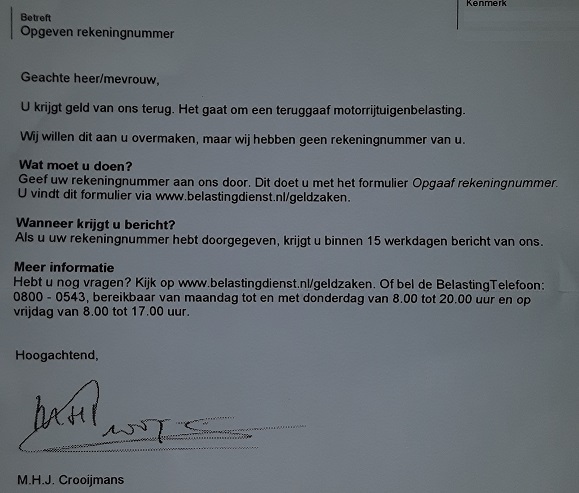De Nederlandstalige versie van dit bericht is te vinden op mijn Nederlandstalige site.
 The other week, I got into a huge digital fight with A. It involved WhatsApp name-calling, long e-mails full of arguments and blame-laying, fiery passion and icy reason, culminating in (hopefully temporary) termination of the friendship: that kind of fight. Thanks to this fight, I have remembered what the essential added value is, and always will be, of traditional, “stone” bookstores.
The other week, I got into a huge digital fight with A. It involved WhatsApp name-calling, long e-mails full of arguments and blame-laying, fiery passion and icy reason, culminating in (hopefully temporary) termination of the friendship: that kind of fight. Thanks to this fight, I have remembered what the essential added value is, and always will be, of traditional, “stone” bookstores.
It started innocently enough, or so I thought. I wish to sell my books, and for that purpose I refer people to Bol.com (the Dutch equivalent of Amazon). Not because my books are available there (for they are available from any online bookstore), not because of the lower shipping cost (for I don’t even know what other web stores charge), but simply because Bol.com pays me money whenever I refer customers. At somewhat regular intervals, I Tweet and post about my books, and add links to the relevant products on Bol.com.
As I did two weeks ago.
It took A less than ten minutes to sharpen a digital pencil and flame me on WhatsApp.
It’s relevant to mention at this point that A works in a bookstore. A’s partner works in a bookstore as well. Together, they feed their family by working heart and soul in the book business, by passionately familiarizing themselves with the countless beautiful books they store and sell.
The bookstore fortunate enough to have employees so passionate about assisting book lovers, is one of the best in Amsterdam: Scheltema. No, wait: Selexyz. Sorry: Polare. No, I’m mistaken: Scheltema. As an example of what is going on in bookstores right now, Scheltema is almost an exaggeration: from takeover to reorganization to merger to reorganization to takeover, with all the name changes, economic turmoil, unrest, and job insecurity that entails. Under the old, familiar name of Scheltema, this venerable institution is finally sailing into somewhat calmer waters, but these have been turbulent years, typical for the hurricane of new developments in the book business and the havoc these developments are wreaking on stone bookstores.
In the Netherlands, Bol.com is the flagship for these developments. Making maximum use of the fact that a book is the same everywhere, and it therefore makes no difference where you buy it, Bol.com has lured masses of readers out of the bookstores and onto their lazy butts, to order their books from the comfort of their own couches. The growth of e-books doesn’t help the matter any; the tsunami of self-publishing and online selling makes it all still worse. Tectonic shifts in the book business, causing bloody mayhem in the traditional bookstores.
So is Bol.com the source of all evil? Is the e-book a bad development, that should be suppressed? Should self-publishing be regulated? And is our existing legislature even up to the task of regulating the book market? Is the fixed book price a valid instrument in this context? Is it even sensible of the traditional bookstores to try and compete with Bol.com through their own web stores?
I think the answer to all of those questions is a resounding No. But that’s not my point.
My point is this.
A mother steps into the children’s books department at Scheltema. She accosts one of the book specialists, and asks which new books are suitable for a six-year-old who is ahead of her years in reading skills, but hasn’t yet developed the world view necessary to benefit from most text-heavy children’ s books. Using her vast knowledge of their assortment, the specialist picks out a small stack of suitable books, and takes the time to tell the mother something about each of the books in the selection. Without batting an eyelash, the mother takes out her camera, shoots the covers of each of the books, and announces straight-faced:
“I don’t want to drag these around; I’ll just order them from Bol.com.”
Taken aback, the specialist tells her that Scheltema can ship the books to her right now at no cost, and that they even have their own web store. To no avail. The same level of effortless comfort is available from Scheltema at the same price, but the mother chooses to shop at Bol.com anyway.
True story.
Is that disrespectful towards the book specialist, who has just put her knowledge, passion and empathy into a perfectly personalized recommendation? I don’t think so. This comes closer: it’s accepting someone’s valuable assistance, and then pissing them in the face. I’ll go a step further: it’s theft, maybe not in the legal, but definitely in the moral sense: withholding the sale the specialist has worked hard for out of sheer shittiness. It’s inviting a contractor into your home for an afternoon of free measurements and advice, and then building that bathroom yourself. It’s even worse than that, because doing your own home improvement actually saves you a lot of money; while shopping at Bol.com is the same price, but at the expense of the stone bookstore that can actually provide the invaluable added value of personalized recommendations.
For that is the added value of the stone bookstore, which it could retain indefinitely if we let it: advising and helping customers, based on passion for their own product and in-depth knowledge of their own books. Bookstores like Scheltema are, or should be, specialist stores. Accepting their advice and then turning your back is shitty, unnecessary, and above all the best way to make sure that there won’t be any personalized advice available in the future. For specialist bookstores cannot survice if the reader—meaning you—accepts their (apparently) free service, but withholds the well-earned payoff by shopping elsewhere.
 I’m the last person to argue that we need to support, save, or otherwise cuddle stone bookstores. What we need to do is use the bookstores as they’re meant to be used, through acquiring both their services and ther products: ask the advice of the passionate, knowledgeable book specialist, who sometimes know even better than yourself what you are looking for, and if their advice results in books you want to buy, then buy those books from them. Not out of charity, but simply because it makes no difference to you where you buy them, and you’ve just accepted a free service that has monetary value, and to do anything else is unnecessary and just plain rude, and guarantees that the bookstore that supplied you with free advice will no longer exist in a couple of years.
I’m the last person to argue that we need to support, save, or otherwise cuddle stone bookstores. What we need to do is use the bookstores as they’re meant to be used, through acquiring both their services and ther products: ask the advice of the passionate, knowledgeable book specialist, who sometimes know even better than yourself what you are looking for, and if their advice results in books you want to buy, then buy those books from them. Not out of charity, but simply because it makes no difference to you where you buy them, and you’ve just accepted a free service that has monetary value, and to do anything else is unnecessary and just plain rude, and guarantees that the bookstore that supplied you with free advice will no longer exist in a couple of years.
And then? Will you then ask for advice from a fat blue cartoon character?
